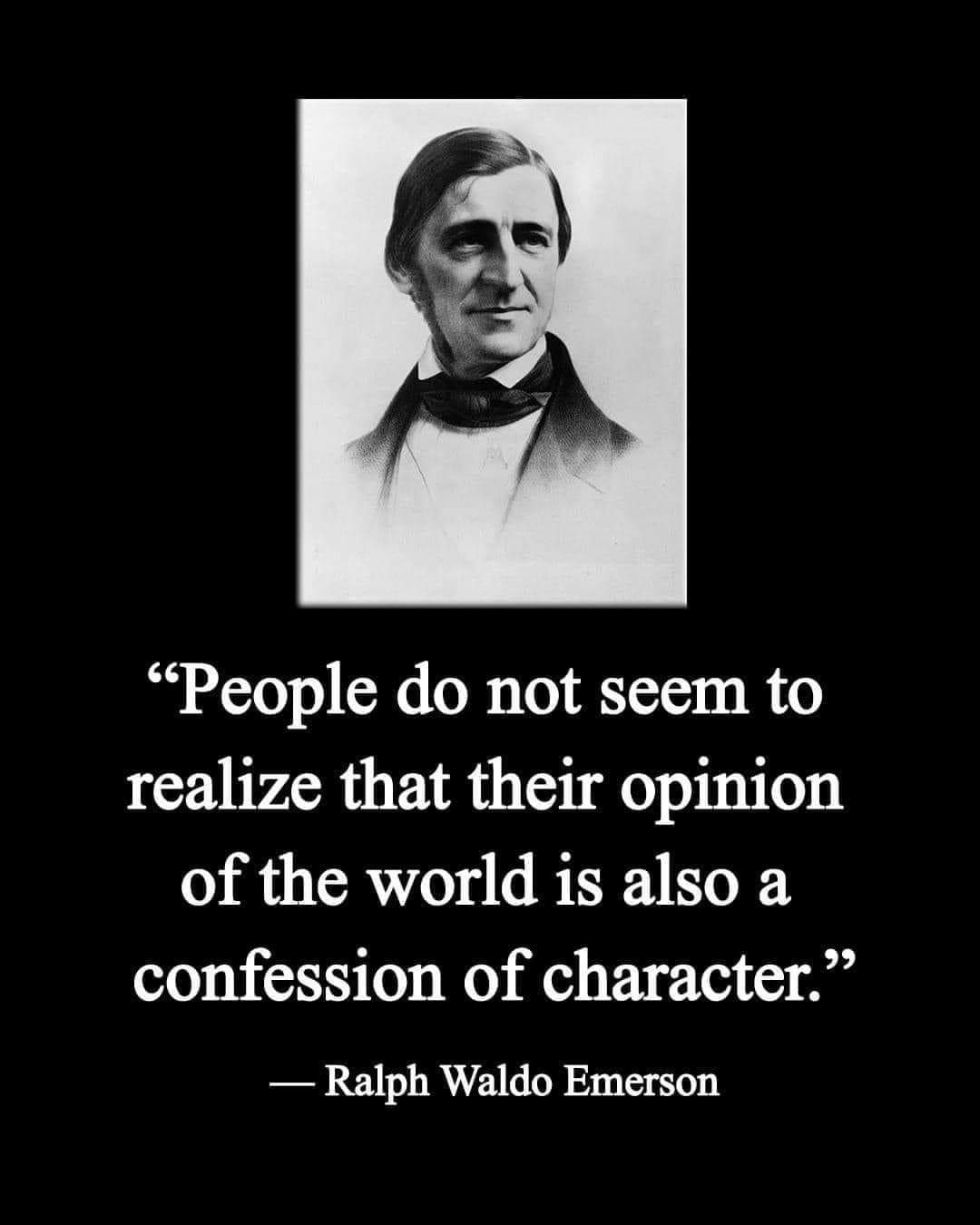Ralph Waldo Emerson, offers a profound reflection on the nature of opinions and character.
The quote, attributed to Ralph Waldo Emerson, offers a profound reflection on the nature of opinions and character. It suggests that our perspectives and judgments are not merely detached comments on the external world but are deeply interwoven with our own inner selves. When we voice our thoughts on the world, we inadvertently reveal much about our principles, prejudices, and values.
Emerson's statement prompts us to consider the implications of our expressed views. It implies that our opinions are a mirror reflecting our moral compass, our upbringing, our fears, and our hopes. Each opinion, therefore, is not just a thought cast out into the void but a self-portrait, exposing parts of our identity that we may not always intend to show.
This insight can be both empowering and daunting. On one hand, it empowers us to use our voices as tools for manifesting our character in the world, standing firm in our beliefs and integrity. On the other, it carries the weight of responsibility – to form opinions that are considerate, well-informed, and representative of the kind of person we aspire to be.
Moreover, Emerson’s words act as a call for introspection. They encourage us to delve into our own character, to examine the foundations upon which we build our views. In doing so, we might find room for growth, for the softening of harsh judgments, or for the strengthening of our virtues.
In essence, this quote is a reminder that in the act of speaking our minds, we are also engaging in an act of self-revelation. It is a powerful declaration of the intertwining of our perception of the world and the essence of who we are. Thus, we must navigate our discourse with both courage and caution, knowing that with every word we are authoring our character in the eyes of the world.


